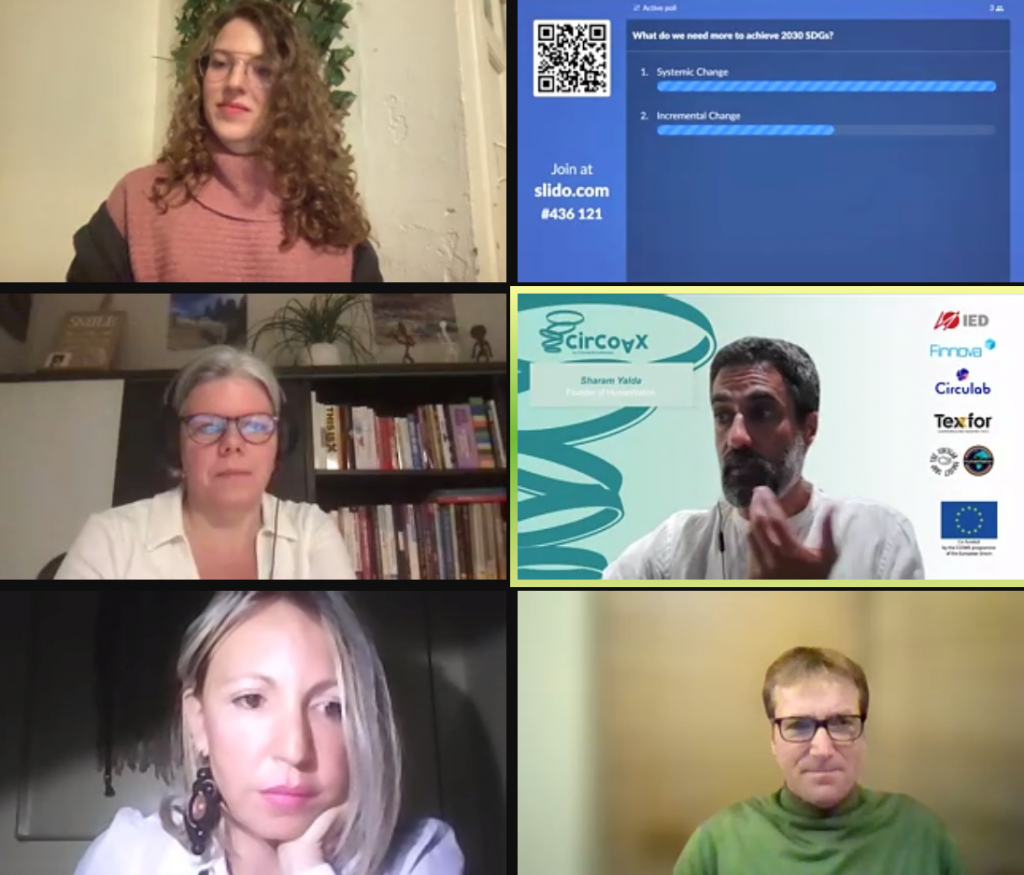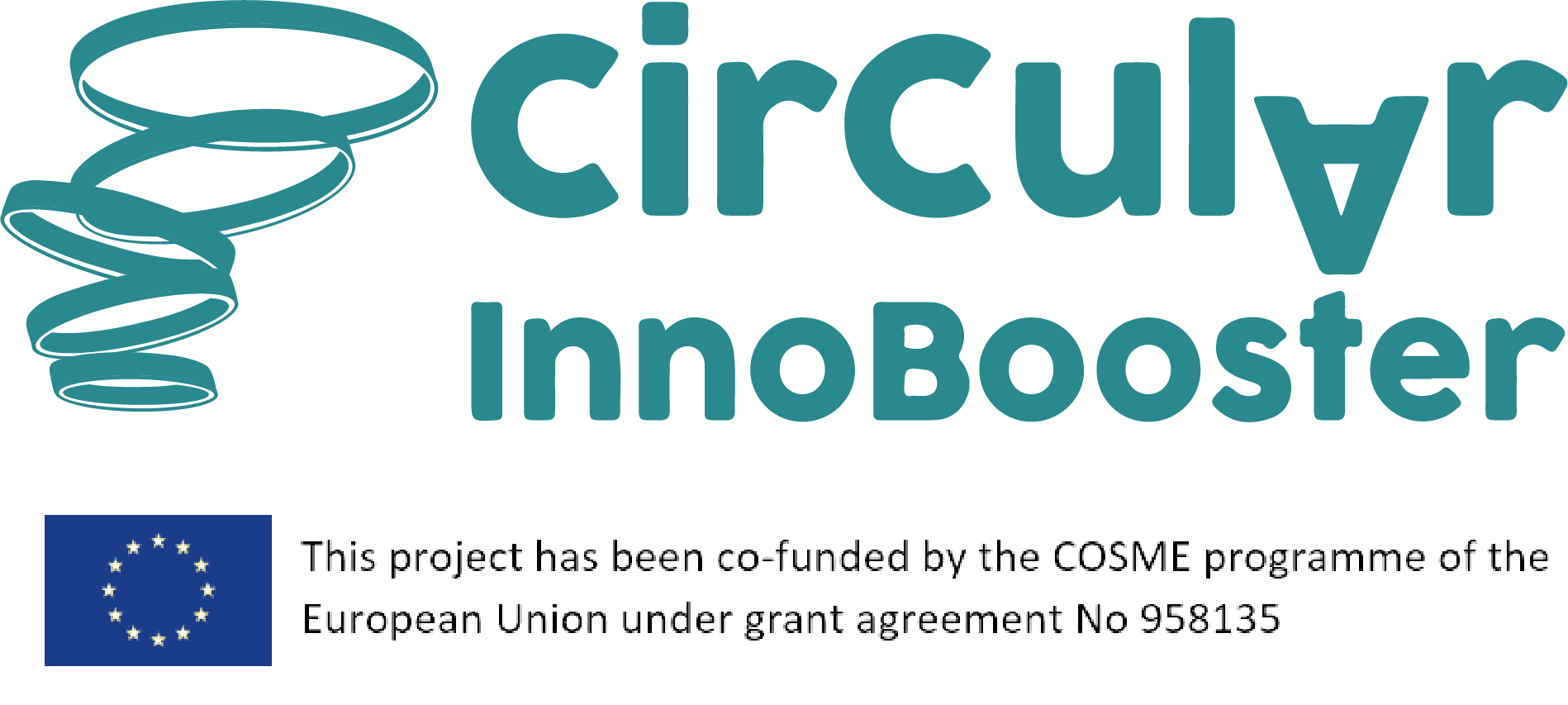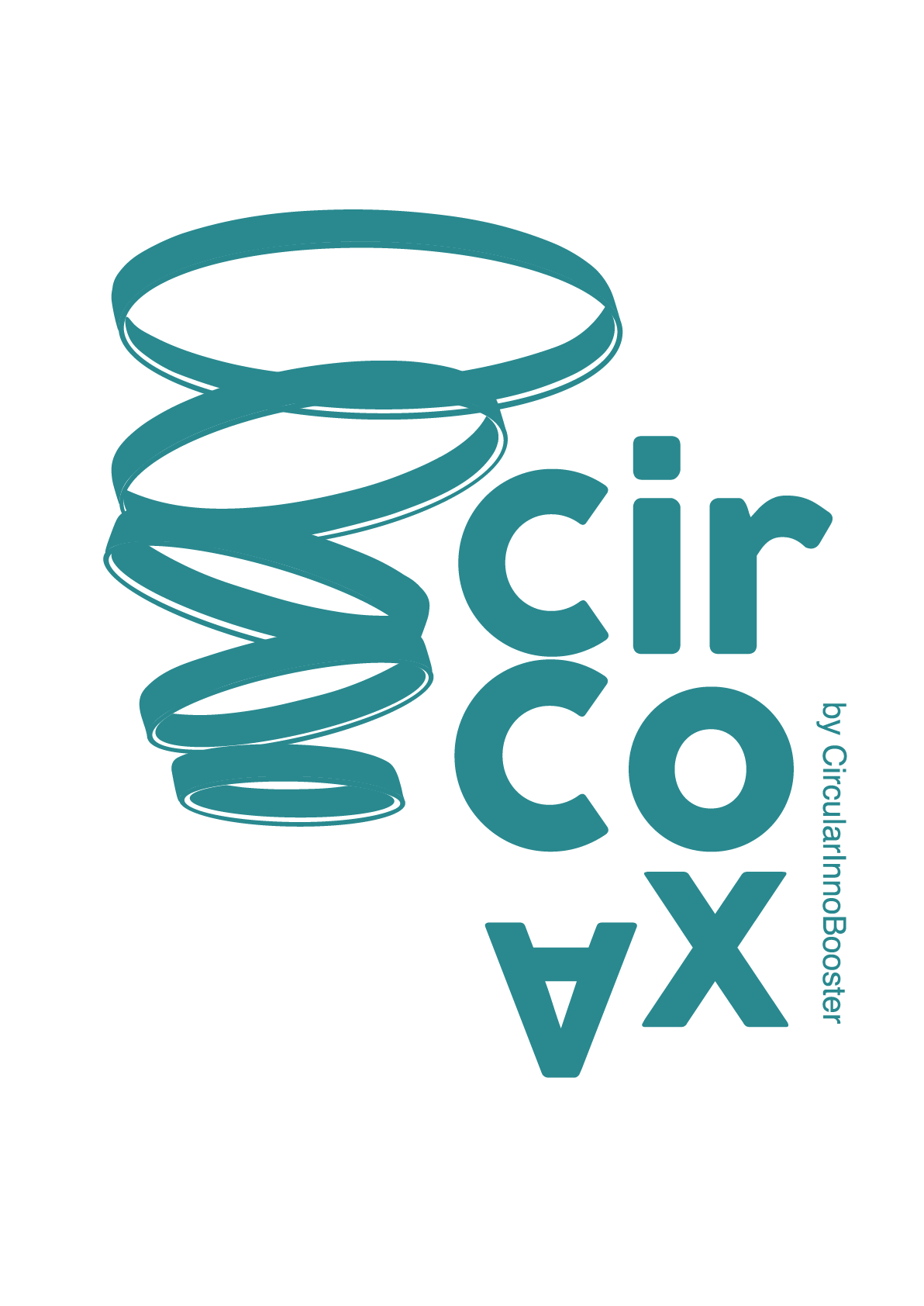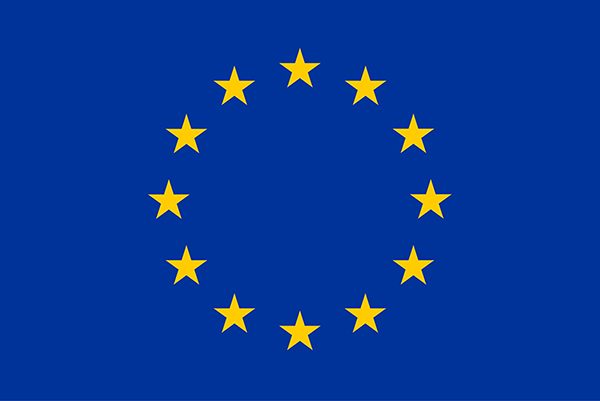
- The event brought together the four projects of the COSME program for the circular economy in the fashion and textile industry.
- These four projects are gathered in the NextextileGeneration cluster, created by the Finnova Foundation, for the dissemination of relevant information for the sustainable fashion and textile industry.
- The event discussed European funding tools to develop projects that enable a more sustainable, innovative and digital Europe.
- Support for entrepreneurs and small businesses and the need to create policies that help change towards sustainability were key points at the meeting.
Brussels, 15.12.2021
On Wednesday, 15 December, the online event “Nextextile EU: transforming the textile and fashion industries into a circular economy model“ was held as part of the World Circular Economy Forum (WCEF), co-organised by the Canadian government in collaboration with the Finnish Innovation Fund Sitra. It aims to raise awareness of initiatives related to the circular economy at a global level to try to impose this model by 2050.
The European Commission’s DG Grow is working to support innovative proposals that, based on cooperation, contribute to achieving the transformation towards a circular and sustainable model. The four projects co-financed by the COSME program of the European Innovation Council and SME Executive Agency (EISMEA) in the call for circular fashion and textiles participated in the event presenting innovative solutions and encouraging cooperation.
Natalia Martínez Páramo, Head of Unit for SMP/COSME at EISME (European Commission), was in charge of opening the event, stating that “thanks to COSME projects, more than 120 promising SMEs, designers and start-ups from the fashion industry will receive direct technical and financial support.” She stressed the importance of “making the necessary changes that will lead to long-term sustainability in a sector that employs 5 million people in Europe.”
She also announced that the European Commission will adopt in the first semester of 2022 a new strategy to advance circularity in the textile industry by encouraging new models in the value chain and the creation of more durable, reusable, repairable, recyclable and energy-efficient materials.
NextextileGeneration
The four COSME projects are brought together in the NextextileGeneration cluster, to give continuity and greater resonance to the actions. Created by the Finnova Foundation, it is an initiative for disseminating relevant information for the sustainable textile and fashion industry.
Juan Manuel Revuelta, CEO of Finnova, underlined that “it is urgent to implement a change in the production and consumption system that guarantees the sustainability of the sector and the environment.” In turn, he mentioned that “the largest economic recovery programme in the history of mankind is underway. In the 2021-2027 period, the EU will be endowed with an economic budget amounting to 12 times the Marshall Plan for recovery from the COVID-19 pandemic through the Multiannual Financial Framework (MFF) and the NextGenerationEU recovery funds.”

Sustainable European projects in the fashion and textile sector
During the event, there was a round table discussion moderated by Rachel Raineri, president of the Textile Association North Carolina State University, with the participation of spokespersons from the different projects: Mercedes Marín and Sharam Yalda, representatives of the COSME CircularInnoBooster project; Ingrid Willems, representative of the COSME S4Fashion project; Fiori Zafeiropoulou, representative of the COSME Small but Perfect project; and Justina Lizikevičiūtė and Michael Laermann, representatives of Fashion for Change.
These projects aim to accelerate the transition of small and medium-sized fashion companies towards circular and sustainable models by engaging in practices that enable the transformation of the fashion sector towards green.

The speakers agreed that large producers in the textile industry must take measures to change production models towards more sustainable and circular processes. They also stressed that the younger generations, increasingly aware of the cause, are key to making change possible in this sector.
Finally, they stressed the need to promote initiatives by entrepreneurs and small companies committed to green models and to create policies that facilitate the transformation of the sector.
To conclude the event, four rooms were created with the representatives of each project for networking, facilitating a space for interaction with the attendees and thus promoting active participation and the exchange of disruptive ideas.
Click here to watch the event.
About WCEF
The annual World Circular Economy Forum (WCEF) showcases the world’s leading circular economy solutions with the participation of business leaders, policy makers and experts from around the world.
Circular economy approaches can help businesses seize new opportunities and gain a competitive advantage, as well as contribute to the achievement of the UN Sustainable Development Goals.
About CircularInnoBooster and the accelerator CirCoAX
CircularInnoBooster Fashion and Textile (F&T) is a project funded by the Programme for the Competitiveness of Enterprises and Small and Medium-sized Enterprises (COSME) of the European Union. With a duration of 2 years, it has a budget of 1,128,000 euros, 75% co-financed by the European Commission. The project is made up of an international consortium led by the European Institute of Design (IED), together with Texfor, Circulab, Finnova, and The Circular Project with HumanNation. Its objective is to replace the linear model of the conventional fashion and textile industry with circular, regenerative and sustainable companies. To this end, it is launching a unique business support plan through its CirCoAX accelerator.
CirCoAX selects 30 transnational partnerships, each led by an SME, to scale innovative proposals that have a direct impact on the adoption of sustainability and circularity approaches and practices in the fashion and textile sectors. To this end, it offers selected applicants €12,000 in funding, mentoring, visibility, networking, and the possibility of accessing further European funding.
About Finnova
Finnova is a foundation working to promote and develop innovation and entrepreneurship across the EU. Headquartered in Brussels, it works through collaborations and partnerships across all EU countries. Finnova’s experience in communicating and disseminating European projects is coupled with an extensive and grounded experience in creating businesses and programmes to support enterprises, such as accelerators, incubators, and the selection and organisation of ceremonies and events.


